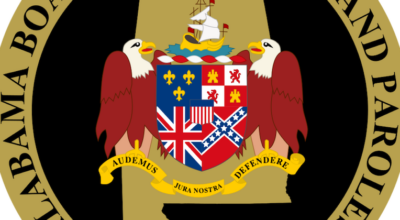Hospital tax act deemed unconstitutional
Published 4:03 pm Thursday, October 4, 2018
|
Getting your Trinity Audio player ready...
|
Act No. 2014-422, which deals with the county hospital tax, has been deemed in violation of the state constitution by the Supreme Court of Alabama.
The court concluded that the act violates Section 107 of the Alabama Constitution based on the published notice of the act failing to inform the people of Chilton County that it was repealing Act No. 2014-162.
The violation was found during the process of Roy Burnett v. Chilton County Health Care Authority and Chilton County.
According to the court documents, Section 107 requires the legislature to provide published notice of the repeal of any local law by another local law. It was ruled that Act No. 2014-422 did not fulfill the requirement.
Section 106 of the Alabama Constitution states that “Notice shall state the substance of the proposed law and be published at least once a week for four consecutive weeks in some newspaper published in such county or counties.”
In the documents it was reaffirmed by the court that the particular constitutional failure requires striking the entire act and not just the section in question.
Citing precedent from Tanner v. Tuscaloosa County Commission, “When the constitutionality of a statue is questioned, it is the duty of the courts to adopt a construction that will bring it in harmony with the Constitution, if its language will permit. There is also an obligatory duty of the courts, which are vest with the power to pass upon the constitutionality of statutes, to not overlook or disregard constitutional demands, which the judges are sworn to support.”
The court documents clearly state that the constitutional problem in question is not the current text of the law, but the inadequacy of the notice provided to the residents of Chilton County.
Section 14 of Act No. 2014-422 is the portion that was deemed to be not included as part of the published notice of the bill prior to its enactment.
According to the documents, an express repeal provision was provided in Section 14 of Act No. 2014-422, which avoids any misunderstanding or accusations or deception against the legislature. It explains why the governor and the legislature went through with the process of ensuring that such a provision was added.
However, citing precedent from Wallace v. Board of Revenue of Jefferson County, even if some people might be aware of the rule of repeal by implication and could ascertain that it might apply in this situation, it does not follow that everyone affected by the change in the law would be so aware.
Precedent from State ex rel. Fowler v. Stone was also used. It stated that published notice seeks to prevent “deception or misleading, [or] depriving those opposed to [an act] of a fair opportunity to protest against and oppose its enactment.”
House Bill 331 was introduced in the Alabama House of Representatives on January 21, 2014 with the stated purpose “to authorize the [Chilton] county commission to levy an additional one cent sales tax which shall be used exclusively for the construction, maintenance and operation of a hospital in Chilton County.”
The bill was approved by the House of Representatives and the Alabama Senate before being signed by Gov. Robert Bentley on March 13, 2014.
On February 16 and 23 and March 2 and 9 of 2014, notices were placed in The Clanton Advertiser containing the full text of a second bill that was introduced in the senate as Senate Bill 462.
The second bill’s purpose was “to levy additional sales and use taxes to be used for the construction, maintenance and operation of hospital facilities in Chilton County.”
The House and Senate approved the bill, but Bentley declined to sign the bill and instead sent the legislation a letter on April 1, 2014, that stated he believed the bill should be amended to repeal a duplicative act.
The next day, the House and Senate adopted the executive amendment and approved the version of Senate Bill 462 that contained the new Section 14.
Bentley signed the bill on April 10, 2014 and it was designated as Act No. 2014-422.






